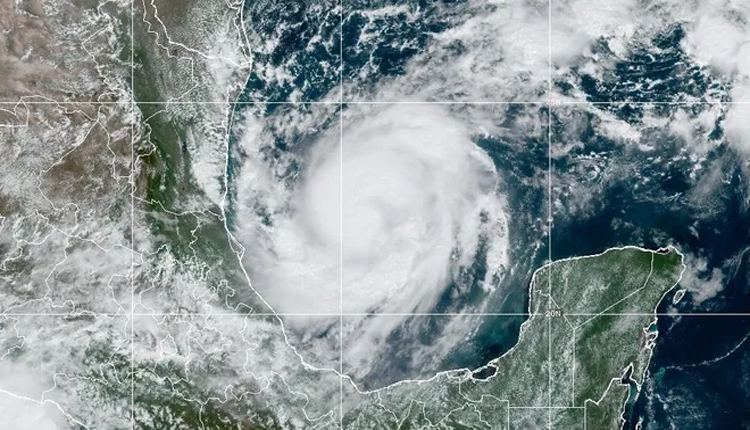Florida: Another powerful storm is brewing in the Gulf of Mexico, threatening to bring destruction to Florida and parts of the southeastern United States. Cyclone Milton, which rapidly intensified into a Category 1 hurricane on Sunday, is steadily moving towards Florida’s west coast, prompting the Biden administration to declare a state of emergency for the region.
According to the US National Hurricane Center (NHC), Cyclone Milton was positioned approximately 780 miles (1,255 km) west-southwest of Tampa as of Sunday. The storm is packing sustained winds of 85 mph (140 kph) and moving eastward towards Florida at a speed of 7 mph (11 kph). The storm is projected to strengthen into a Category 3 hurricane before making landfall, potentially endangering the lives of around 15 million people along its path.
The NHC warned that by Wednesday morning, cities along Florida’s west coast could face catastrophic impacts from high waves, torrential rains, and intense winds. Forecasters predict rainfall between 5 to 8 inches (127-203 mm) across Florida and the Florida Keys, with isolated areas receiving up to 12 inches (304 mm). The heavy rain, combined with strong winds, raises concerns about flash flooding in several coastal regions.
Kathy Perkins, the county’s emergency management director, confirmed that six hospitals, 25 nursing homes, and 44 public healthcare facilities have already been evacuated, affecting around 6,600 patients. Schools and airports have been ordered to shut down from Monday through Wednesday as a precautionary measure.
Milton is set to be the second major hurricane to strike the United States in just two weeks, following the devastating impact of Cyclone Helen. Helen left a trail of destruction across South America, killing at least 225 people and causing an estimated $250 billion in damages. In the past six months, 13 storms have formed in the Atlantic Ocean, four of which—including Helen and Beryl—have caused significant damage in the US, including power outages in Houston.
The NHC also issued warnings for southeast North Carolina and northeast South Carolina, as these states could experience high waves, strong winds, and heavy rainfall as Milton approaches. While storm conditions are not expected to be as severe as those in Florida, North Carolina residents are on edge after facing devastating flash floods caused by Cyclone Helen.
Forecasters expect Cyclone Milton to make landfall in Tampa Bay on Wednesday, before sweeping across central Florida and entering the Atlantic Ocean.



Comments are closed.